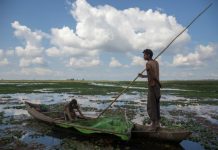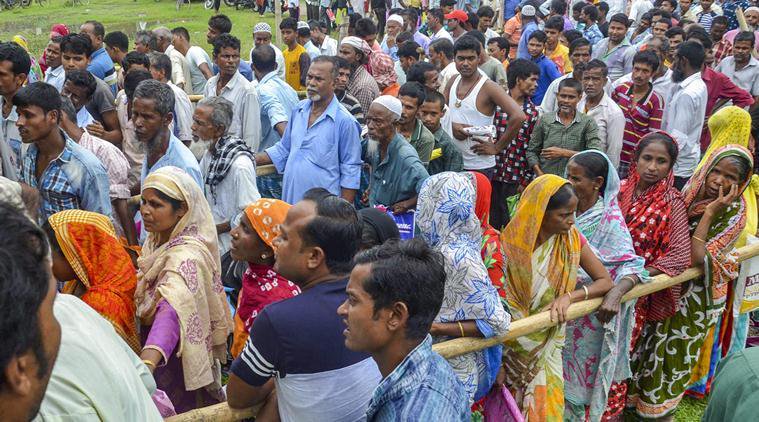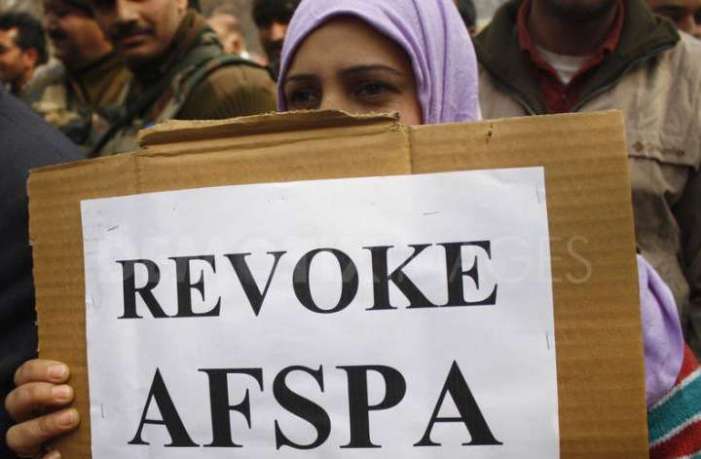PERSPECTIVE
The latest proposal to bring an amendment to the Citizenship Bill by providing citizenship to minority communities coming from Bangladesh, Pakistan and Afghanistan except for the Muslims has made the situation tense. The alleged foreigners of Assam live a life of uncertainty and difficulty.
Chandreyee Goswami | The New Leam [supsystic-social-sharing id=’5′]
The National Register of Citizens and the Citizenship Amendment Bill are two parallel processes that have created an atmosphere of utter confusion, suspicion and restlessness particularly for those who are suspected as illegal resident of Assam. By illegal resident in Assam, what the general perception is that he or she is not an Indian citizen and that in all probabilities he or she has fled from Bangladesh.

The NRC which is a document to update the list of Indian citizens primarily based on legacy data apart from other documents, to show the line of decent proving that the ancestors of the given individual was an Indian citizen. In this context, the Assam Accord becomes crucial signed between the Government of India and All Assam Students’ Union (AASU) ending a long drawn movement against the ‘foreigners’.
This Accord led to an amendment in the Citizenship Act whereby it inserted an exception for Assam in the Act by setting the cut off date for Assam as March 24, 1971 instead of July 19, 1948 which is the cut off date for the rest of India for acquiring citizenship.
In this regard, the process of detecting illegal migrants, particularly from Bangladesh began much earlier by special courts called the Foreigners’ Tribunal Courts. Once the individuals are detected as foreigners, they are sent to the detention camps which in most case are extension of the existing jails in Assam. However, this process has come under immense criticism due to piecemeal manner in which the process is being followed as well as for severe anomalies and human rights violation.
Recently, Harsh Madera special monitor for the National Human Rights Commission visited two detention centres to review the situation of the centres and the detainees who were minorities. In his report which he published in the media as NHRC failed to do so, it was found that the majority of persons deemed to be foreigners and detained in the camps had lacked even elementary legal representation and had not been heard by the tribunals.
They were mostly detained on the basis of “ex-parte orders”, or orders passed without hearing the accused person because they allegedly failed to appear before the tribunals despite being served legal notices. For those who did get the notices, we learned that typically, a huge panic set in and many sold their meagre properties and took large loans to hire lawyers to steer them through this process. Many of the lawyers were poorly qualified or deliberately let them down.
Besides, what they encountered was grave and extensive human distress and suffering. Each centre has been carved out of a corner of a jail. Here, the detainees are held for several years, in a twilight zone of legality, without work and recreation, with no contact with their families save for rare visits from relatives, and with no prospect of release. In a jail, inmates are at least permitted to walk, work and rest in open courtyards. But the detainees are not allowed out of their barracks even in the day, because they should not be allowed to mix with the “citizen prisoners”.
[irp]
Moreover, another problem is the matter of deportation which has been very slow compared to detention. It is because till date there have been no formal diplomatic discussions between the two states regarding the foreigner issue and as a result Bangladesh has always denied the presence of Bangladeshi citizens in Indian soil and is not open to accepting them.
Trapped between a failed negotiation of the governments and tremendous uncertainty of their futures, the alleged foreigners are now living a life of constant fear and suspicion.
The latest proposal to bring an amendment to the Citizenship Bill by providing citizenship to minority communities coming from Bangladesh, Pakistan and Afghanistan except for the Muslims has made the entire scenario even worse. It is not that the religion tangent was never a question in the whole debate of illegal migrants in Assam. But the directness and outright basis of granting citizenship on religion through a legal and constitutional manner will not only breached the very ethos of secularism that our Constitution upholds but also betrays those who identify themselves as an Asomiya .














